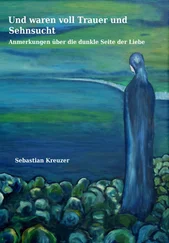Every few sentences Kearney stops to let the translator catch up, and spends the time pacing back and forth, getting more and more heated. “I can walk into Aliabad and not get shot at and not find any weapons… and I come into your village and I find RPGs.” He picks one up and waves it at the elders. “I bet I could give this RPG to any one of these younger kids and they’d know how to fire it — and they probably don’t even know how to read.”
He points to a young man seated in front of him. “You know how to shoot this thing?”
The kid shakes his head.
“Yeah, right.”
Kearney looks around. “You guys have insurgents here that are against myself and against the ANA and against the government. And they’re going to cause you guys to be hurt if you don’t help me out. I was able to pinpoint fifty insurgents that were in and around your village. The first building I engaged, the next morning when I get there I find five RPGs in it. So I know there’s not only good people in the building, there’s also bad people.”
Hajji Zalwar Khan, the wealthy and dignified leader of the valley, sits cross-legged on the ground directly in front of Kearney. He’s got a white beard and a handsome face and a narrow, aquiline nose that would easily pass for French at a Paris café. Kearney finishes by asking him point-blank for help: he wants Zalwar Khan to bring representatives from Yaka Chine to the weekly shura at the KOP. The old man says that Kearney will have to supply the fuel for the trip, and Kearney is about to agree but catches himself.
“I already told you: one Dishka and I’ll pay for your fuel,” he says. “When you tell me where a Dishka is, I’ll give you fuel for every single Friday for as long as I’m here.”
Zalwar Khan laughs. Kearney pinches the bridge of his nose and shakes his head.
“Hajji, I trust you,” he says. “I trust you.”
Ostlund is up next. He stands there bareheaded and clean-shaven, looking more like a handsome actor in a war movie than a real commander in the worst valley in Afghanistan. His style is respectful and earnest and he appeals to the men before him as husbands and fathers rather than as potential enemies.
“We came here with a charter from the U.S. government with direction from the Afghan government and the Afghan national security forces,” he says. The translator delivers the sentence in Pashto and then stops and looks over. “And we were asked to bring progress to every corner of Afghanistan. Somehow miscreants have convinced some of your population that we want to come here and challenge Islam and desecrate mosques and oppress Afghan people. All of those are lies. Our country supports all religions.”
The translator catches up. None of the expressions change.
“All of my officers are trained and educated enough that they could teach at a university,” Ostlund goes on. “I challenge you elders to put them to work; put them to work building your country, fixing your valley. That’s what they’re supposed to do — that’s what I want them to do — but they can’t until you help us with security.”
The translator is good; he delivers Ostlund’s points with nuance and feeling and looks around at the old men like he’s delivering a sermon. They stare back unmoved. They’ve seen the Soviets and they’ve seen the Taliban, and no one has made it in Yaka Chine more than a day or two. The name means “cool waterfall,” and it’s a truly lovely place where you’re never far from the gurgle of water or the quiet shade of the oak trees, but it’s no place for empires.
“You can be poisoned by miscreants and they can tell you that America is bad, that the government’s bad, but I ask you this: what have the people who run around with this stuff” — Ostlund waves a hand at the weapons — “done for your families? Have they provided you an education? Have they provided you a hospital? I don’t think so. I would say, shame on you, if you follow foreign leaders that leave their beautiful homes in Pakistan and come here and talk you into fighting against your own country, and they do nothing for you.”
He stops so that the translator will get every word, then goes on:
“The ACM that comes in and gives you five dollars to carry this stuff around the mountains and tells you you’re doing a jihad, is doin’ nothing for you except making you a slave for five dollars. These foreigners won’t fight my soldiers; they hide on a mountain in a cave under a rock and talk on the radio and pay your sons a small amount of money to go ahead and shoot at my soldiers. And my soldiers end up killing your sons.”
ACM means “Anti-Coalition Militia” — essentially, the Taliban. It’s a good speech and delivered with the force of conviction. That night a dozen or so fighters are spotted moving toward Kearney’s position on Divpat, and an unmanned drone fires a Hellfire missile at them. They scatter, but the Apaches won’t finish them off because they can’t determine with certainty that the men are carrying weapons. The Americans fly out of Yaka Chine, and valley elders meet among themselves to decide what to do. Five people are dead in Yaka Chine, along with ten wounded, and the elders declare jihad against every American in the valley.
DAWN ON THE ABAS GHAR, SOLDIERS CURLED ON THE ground wrapped in poncho liners or zipped into sleeping bags. The platoon has made a cold camp in a forest of small spruce after walking most of the night chasing heat signatures on the upper ridges. The signatures turned out to be embers that were still burning from artillery strikes days earlier. When the men kick out of their bags the sun is already over the eastern ridge and the Afghans have started a twig fire in a patch of bare open ground to warm their hands. There are stumps of huge trees cut down years earlier and hillsides of chest-high brush now blaze-yellow in the late season and dirt trails packed so hard they’ll barely take a footprint. The men change their socks and lace up their boots and smoke the day’s first cigarette and line up with their rifles balanced sideways on their ammo racks. Then they move out.
The men walk slowly and deliberately under their heavy loads, stopping when the line accordions and then starting up again without a word. Walking point is a four-man team from Mac’s First Squad, and their job is to clear the terrain ahead of the main group and trip any ambushes. First Squad is the lead element for the platoon, which is spearheading the effort for the entire company, which represents the main thrust of the battalion. It’s a significant honor and a huge responsibility. The men are sweating now and moving uphill toward the rising sun through burned-over logging slash and quiet dense stands of spruce and fir. Off to the south the mountains are still smoking from the airstrikes above Yaka Chine. Around midmorning Piosa calls a halt because Prophet has picked up enemy fighters discussing American troop movements, and then a possible bunker is spotted on a ridge to the southwest. Rougle’s sniper puts three rounds into it but nothing happens, so Piosa sends First Squad to clear the structure and get a grid coordinate, and then they move on.
It’s as if they’re alone on the mountain, but they’re almost certainly not. Prophet picks up radio chatter that insurgents have caught an Afghan soldier and are going to cut his head off. The Americans conduct a furious personnel count and determine that it’s just a bit of psychological warfare to throw them off their game. Kearney finally calls mortars down on a ridgeline to the south — a suspected enemy position — but even that fails to stir anything up. At one point, a shepherd wanders through the position with a herd of goats; later, Prophet picks up radio traffic of men whispering. The insurgents have never whispered on their radios before and no one gives it any thought until much later, when the reasons are all too clear.
Читать дальше
Конец ознакомительного отрывка
Купить книгу












